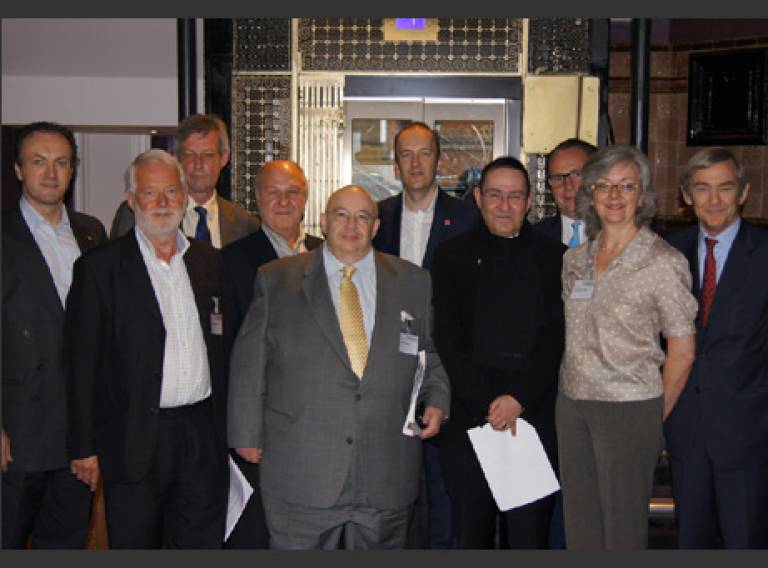West End Commission set up to establish a blueprint for the future success of London’s busiest area
21 August 2012

Experts drawn from the worlds of business, academia, entertainment, and transport met for the first time on Wednesday 1 August 2012 as members of the newly-formed West End Commission, set up to establish a blueprint for the future success of London’s busiest area.
Ten members of the West End Commission’s 12-strong team gathered for its inaugural meeting at London’s newly-reopened Hippodrome Casino. The team is headed by Manchester City Council's Chief Executive, Sir Howard Bernstein, and amongst the members of the team is Professor Yvonne Rydin, Chair of Planning Environment and Public Policy at the Bartlett School of Planning.
Sir Howard Bernstein is widely credited with overseeing the rebirth of Manchester following the IRA bombing of the city centre in 1996. The Manchester City Council chief executive has gone on to oversee a raft of major projects bringing millions of pounds into Manchester. Sir Howard said: “Today’s meeting brings together for the first time the team of West End Commissioners, all of whom are renowned in their fields 1and this underlines both their independence and unique expertise they bring to the challenges and issues facing the West End.
Other members of the team attending the inaugural meeting were: Matthew Bennett of the Soho Society; Julian Bird, Chief Executive of the Society of London Theatre; Geoffrey Riesel, Chairman of the Radio Taxis Group, Greg Clark, international advisor on city investment and management; Harvey Goldsmith, performing arts promoter; Simon Thomas, Chairman of Hippodrome Casino Ltd; David Shaw, head of Regent Street at Crown Estate; Jim Steer, founder of Greengauge21 and the transport consultancy Steer Davies Gleave.
The West End Commission was created in January 2012 by Westminster City Council’s cabinet and has the task of bringing together a range of independent experts to guide the future success of the West End and consider the challenges it faces. It will look into issues including transport, infrastructure, city management, safety and the promotion of business and visitor needs. It will also look at lessons from other cities both in the UK and abroad. The West End commission’s first action today was to call for evidence from businesses, public sector organisations, the creative industries, the public and the voluntary sectors on the problems and priorities ahead for the West End. It will hold regular evidence sessions, starting in October, at which those with an interest in how the West End is run will be invited to put their views.
The new website for the West End Commission, www.westendcommission.com will allow users to submit written evidence to the Commission as well as updating on WEC news.
 Close
Close

